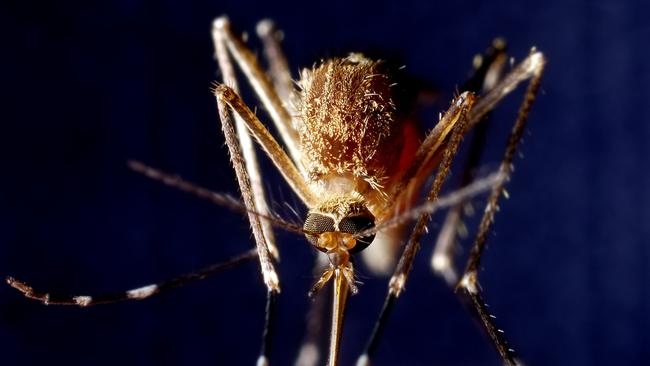Health workers visit remote Far North island in bid to limit malaria outbreak
Health authorities are warning residents on a remote island in the Torres Strait to undertake “mosquito control measures” after a second case of locally acquired malaria was detected recently.

Cairns
Don't miss out on the headlines from Cairns. Followed categories will be added to My News.
Health authorities are warning residents on a remote island in the Torres Strait to undertake “mosquito control measures” after a second case of locally acquired malaria was detected recently.
Torres and Cape Hospital and Health Service public health staff visited Saibai Island this week to deliver information to residents living more 900km north of Cairns about the dangers of mosquito-borne diseases and how to minimise risk.
Health workers and Torres Strait Island Regional Council representatives undertook health checks for further cases while mosquito spraying also was undertaken.
The second case was detected as a result of community checks undertaken following the
detection of the first case last month.
The two Saibai cases bring to seven the total of malaria cases detected in the TCHHS region so far this year, Dr Paul Dugdale said.
“Early this year, an overseas acquired case of malaria was detected at Lakeland near Cooktown, along with four further overseas acquired cases detected in the Torres Strait,” Dr Dugdale said.
“Previously, there were five cases of locally acquired malaria in the Torres Strait in 2023 – on
Saibai and Boigu islands – but prior to that, no cases since 2013.”
Malaria is a mosquito-borne disease and is not transmitted directly from person-to-person. It is spread to people via a bite from particular types of mosquitoes.
The most common symptoms of malaria are high fever, headache, backache, nausea, vomiting, and muscle and joint pains.
If anyone exhibits any of these symptoms, they should seek advice and support from a
healthcare professional.
Malaria is treatable and there is no cause for community alarm, Dr Dugdale said.
“Several effective drugs are available for treating malaria,” he said.
“Early malaria can usually be easily treated whereas late, severe, or complicated malaria can be a life-threatening medical emergency.
“Travellers to regions where malaria is present should always take precautions to avoid
mosquito bites, as well as ensure they take appropriate medication to prevent malaria.
TCHHS has recommended residents avoid contracting malaria by undertaking personal protective measures, including:
● wear light-coloured clothing, long-sleeved shirts and long pants wherever possible
● Use insect repellent
● Use other mosquito protection devices such as electric zappers and mosquito coils.
● Install insect screens that are in good working order in your home and office and
● sleep under a mosquito net.
Originally published as Health workers visit remote Far North island in bid to limit malaria outbreak


